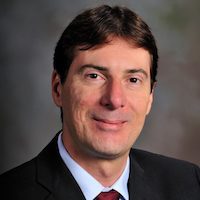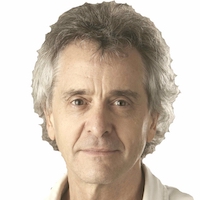
Short Courses
The following short courses will be offered on June 24, 2018. Since they are scheduled for the same time, participants may only sign up for one course. A short course can be added at the time of registration or, subject to availability, can added at a later date by emailing isba2018@maths.ed.ac.uk.
1. Bayesian Econometric Methods and Applications
Description
Organizers
Confirmed Speakers
2. ABC in Edinburgh
Description
Organizers
Invited speakers
- Professor Gael Martin (Monash University) has worked on the asymptotic foundations of ABC and its application to econometrics.
- Professor Jessica Cisewski (Yale) and Dr Emille Ishida (Universite Clermont-Auvergne) have worked on applications of ABC in Astrophysics.
- Alexander Buchholz is a PhD student at University Paris Saclay / ENSAE and works on Quasi Monte Carlo methods for ABC.
- Dr. Christopher Drovandi (Queensland University of Technology) has worked on the connection between ABC and indirect inference
Workshop Homepage
3. Reproducible Computing
Description
Success in statistics and data science is dependent on the development of both analytical and computational skills. This workshop will cover:
- Recognizing the problems that reproducible research helps address.
- Identifying pain points in getting your analysis to be reproducible.
- The role of documentation, sharing, version control, automation, and organization in making your research more reproducible.
- Introducing tools to solve these problems, specifically R, RStudio, RMarkdown, git, GitHub, and make.
- Computational reproducibility specific to Bayesian methodologies.
Presenters
4. Bayesian Time Series Analysis for Environmental Science and Neuroscience
Description
Presenters
 Raquel Prado, University of California, Santa Cruz
Raquel Prado, University of California, Santa Cruz
 Marco Ferreira, Virginia Tech
Marco Ferreira, Virginia Tech
 Mike West, Duke University
Mike West, Duke UniversityMike West holds a Duke University distinguished chair as the Arts & Sciences Professor of Statistics & Decision Sciences in the Department of Statistical Science, where he led the development of statistics from 1990-2002. A past president of the International Society for Bayesian Analysis (ISBA), Mike has served the international statistics profession in founding roles for ISBA and other in other professional organisations and institutions.
Mike’s research and teaching activities are in Bayesian analysis in ranges of interlinked areas: theory and methods of dynamic models in time series analysis, multivariate analysis, latent structure, high-dimensional inference and computation, quantitative and computational decision analysis, stochastic computational methods, and statistical computing, among other topics. Interdisciplinary R&D has ranged across applications in signal processing, finance, econometrics, climatology, systems biology, genomics and neuroscience, among other areas. Main current interests are in macroeconomic forecasting and policy decisions, financial econometric forecasting and decisions, dynamic network studies in IT/commerce, and large-scale forecasting and decision problems in business and industry.
Mike has received a number of international awards for research and professional service, and multiple distinguished speaking awards. He has been a statistical consultant for various companies, banks, government agencies and academic centers, co-founder of a biotech company, and past or current advisor or board member for several financial and IT companies. Mike teaches in academia and through short-courses, works with and advises many undergraduates and Master’s students, and has mentored over 60 primary PhD students and postdoctoral associates, most of whom are now in academic, industrial or governmental positions involving advanced statistical research.
